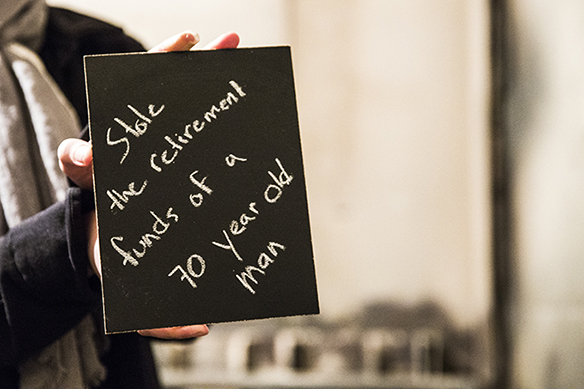What separates those with a criminal record from the rest of the population? According to lawyer Emily Baxter, not a whole lot. Baxter’s new project, “We Are All Criminals,” examines the illegal activities committed by people without a criminal record. In Minnesota, one out of four residents has a criminal record, but Baxter’s project, she says on her website, is about the 75 percent that “got away, and how very different their lives may have been had they been caught.”
By emphasizing the crimes of the unconvicted, Baxter blurs the lines between criminal and non-criminal and draws attention to the detrimental effects that a criminal record has on the lives of those who are convicted. Many of the undocumented and unpunished transgressions confessed through her project were committed when the perpetrators were juveniles, many of whom are now lawyers, doctors, and professionals.


Michael Friedman, executive director of the Legal Rights Center in Minneapolis, is intrigued by the project, saying:
“I don’t think I’ve come across anybody who has not committed crimes as a juvenile,” Friedman said. “Allowing society to use juvenile criminal records as a marker for someone’s potential success, or risk for employment or opportunity, is not scientific. It’s dangerous and discriminatory.”
The most intriguing part of Baxter’s project lies in its look at society as a whole. Imagine if we had all been prosecuted for every crime we committed, even as a juvenile. What would the crime rate look like then?
This post originally appeared on Sociological Images, a Pacific Standard partner site.





